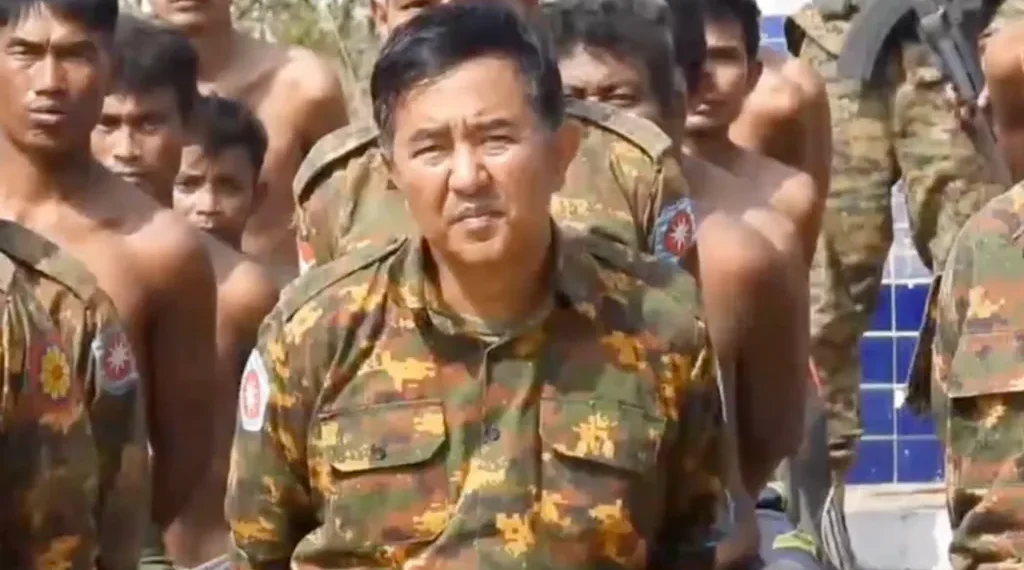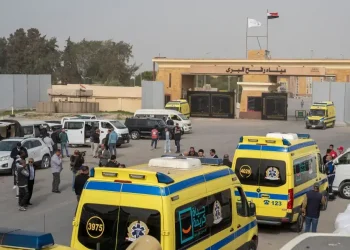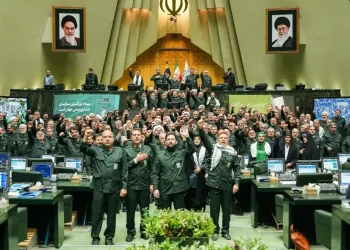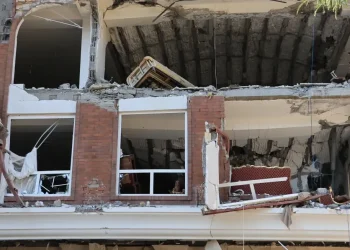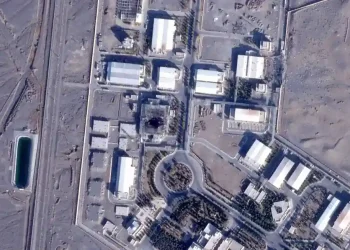A Brutal Finale: Myanmar Junta Faces Crushing Defeat in Rakhine
The fall of the BGP5 barracks in northern Rakhine State was both loud and devastating. What began with crackly demands for surrender ended in a thunderous storm of artillery, rockets, and rifle fire, tearing apart the fortified compound that housed hundreds of Myanmar junta soldiers.
BGP5, short for Border Guard Police, marked the Myanmar military’s last stand along the 270-kilometer border with Bangladesh. This defeat delivered a critical blow to the military junta, led by General Min Aung Hlaing, which has faced growing challenges since its 2021 coup.
A Fierce Battle in Maungdaw
Video footage from the Arakan Army (AA), the insurgent force responsible for the siege, shows barefoot fighters armed with diverse weapons attacking the base. Overhead, Myanmar Air Force jets roared in a desperate bid to repel the insurgents.
The AA’s advance was painfully slow, hampered by deep trenches filled with spikes, reinforced bunkers, and over a thousand landmines. “Many of our fighters lost limbs or lives trying to breach their defenses,” an AA source told the BBC.
After months of siege, the junta’s forces were left demoralized. Despite airdropped supplies, they suffered from untreated injuries, and morale plummeted. By last weekend, they surrendered in disarray. Video footage showed soldiers emerging barefoot, waving white flags, some limping on makeshift crutches. Inside the compound, piles of bodies bore witness to the intense battle.
The AA claims over 450 soldiers died during the siege, including high-ranking officers like Brigadier-General Thurein Tun, whose capture was widely publicized.
A Strategic Turning Point
The fall of BGP5 marks a humiliating setback for General Min Aung Hlaing’s regime. With the AA now controlling the entire border with Bangladesh, the junta retains a tenuous grip on Rakhine’s capital, Sittwe, which remains cut off from the rest of the state.
The Arakan Army’s rise as a formidable force is notable. Established in 2009 by young ethnic Rakhine seeking better opportunities near Myanmar’s border with China, the AA is now part of the Three Brotherhood Alliance, a coalition of insurgent groups dealing significant blows to the junta.
Unlike its allies, the AA has returned to Rakhine, channeling long-standing grievances over poverty and neglect into a robust fight for autonomy. Its leaders are disciplined, well-funded, and equipped with modern weapons, courtesy of alliances with older insurgent groups near China.
Challenges Ahead for the Arakan Army
While the AA’s territorial gains are significant, governing Rakhine presents new challenges. The state, already impoverished, has been devastated by intense fighting. According to one displaced Rohingya man, “Eighty percent of housing in Maungdaw and surrounding villages has been destroyed.” The United Nations has warned of famine due to military blockades and massive displacement.
The AA’s ability to administer its territory remains uncertain. Reports indicate it struggles to provide food and shelter for those displaced. Furthermore, its relationship with the Rohingya population—who make up a significant portion of Rakhine—remains fraught.
Rohingya Relations and Controversies
The Rohingya, who suffered mass expulsions during the military’s 2017 campaign, still number around 600,000 in Rakhine. The AA’s treatment of them is under scrutiny. While some Rohingya welcome the prospect of living under AA rule, tensions between ethnic Rakhine and Rohingya persist.
The situation worsened after Rohingya militant groups sided with the junta during recent conflicts. The AA has accused these groups of betraying their cause and has expelled tens of thousands of Rohingya from newly captured towns.
In August, a tragic incident further strained relations when bombs—likely from AA drones—killed dozens of Rohingya, including women and children, as they tried to flee to Bangladesh.
A Fragmented Opposition
While the AA’s victory underscores its strength, it raises broader questions about Myanmar’s future. Ethnic insurgents, including the AA, are aligned with the shadow government that opposes the junta, but their long-term goals may diverge.
China, a key player in the region, is pushing for a ceasefire that could leave much of the military’s power intact. Some insurgent groups have already accepted China’s proposal, raising concerns that territorial gains may lead to deals rather than the junta’s complete ouster.
For now, the AA’s leadership is tight-lipped about its plans. As it consolidates power in Rakhine, the group must navigate the challenges of governance, humanitarian crises, and its fraught relationship with the Rohingya population.
The road ahead for Rakhine is uncertain, but the fall of BGP5 signals a significant shift in Myanmar’s civil war—a war that continues to reshape the nation’s fragile future.
This article was rewritten by JournosNews.com based on verified reporting from trusted sources. The content has been independently reviewed, fact-checked, and edited for accuracy, neutrality, tone, and global readability in accordance with Google News and AdSense standards.
All opinions, quotes, or statements from contributors, experts, or sourced organizations do not necessarily reflect the views of JournosNews.com. JournosNews.com maintains full editorial independence from any external funders, sponsors, or organizations.
Stay informed with JournosNews.com — your trusted source for verified global reporting and in-depth analysis. Follow us on Google News, BlueSky, and X for real-time updates.
